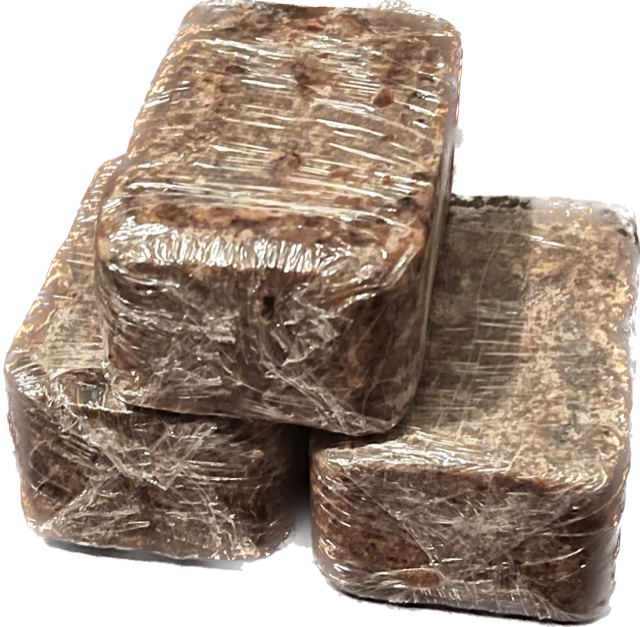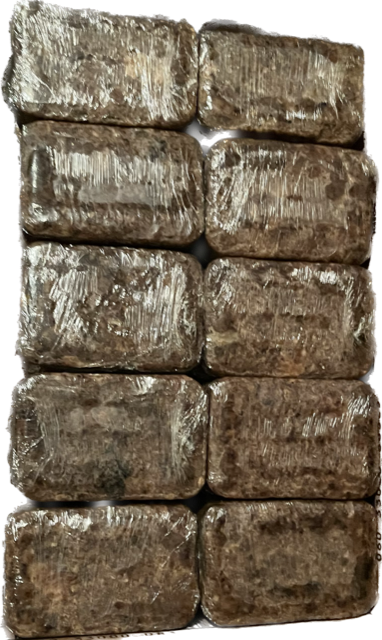Bafo Beauty Supply
Black Soap
Black Soap
Couldn't load pickup availability
African black soap has multiple uses for every skin type, with benefits beyond providing a deep clean. “We need more research to confirm whether it does even more than clean, but the results so far are promising.”
12 potential benefits of African black soap for your skin.
1. Removes bacteria
Studies show that African black soap’s natural antibacterial ingredients work better than medicated cleansers to remove certain harmful bacteria, dirt and other impurities.
2. Deep cleans your skin
African black soap’s natural ingredients make it a thorough facial cleanser and makeup remover. Its oils and butters help dissolve makeup, while it effectively removes dirt from your face or body.
3. Exfoliates to help improve skin texture and tone
African black soap is much less smooth than other soaps, due to the ashes used to produce the soap, so it works as a natural exfoliant, removing dead skin cells before they clog pores and hair follicles. The plantain skins and leaves found in African black soap are naturally high in vitamin A, which can brighten your complexion, too.
“It’s a good alternative to chemical products if you’re looking for a product with natural ingredients.
4. Reduces or prevents razor burn
If you’re used to having irritated skin or razor bumps after you shave, you may want to give African black soap a try. The oil and butter in African black soap may help soothe skin to prevent the aftereffects of razor burn.
In the survey of 100 users of African black soap, 92% said they were either “very satisfied” or “somewhat satisfied” with African black soap for razor bumps.
Use it before shaving to soften your hair and make shaving easier.
5. Helps with mild skin rashes
Some people use African black soap to improve rashes caused by eczema and other types of dermatitis, psoriasis and skin allergies. More research is needed to confirm these benefits of African black soap,
If your rash symptoms persist or worsen, even while using the soap, talk to your healthcare provider about treatment options.
6. Treats fungus
African black soap may help control skin fungus, including a yeast called Candida albicans. That means you may be able to use it to treat conditions like athlete’s foot and toenail fungus. The soap also may help control dandruff caused by fungus.
7. Moisturizes without stripping essential oils
African black soap’s multiple ingredients help strike a balance — shea butter adds moisture to your skin while coconut oil prevents excess oiliness. These oils and fats lock in moisture but wash off well with water, so you’re not left with a buildup that can clog pores.
Use African black soap to relieve dry skin or itchiness, especially if you have combination skin.
“Some people do find that African black soap can dry their skin. “If that’s the case, you can use less or try another brand with more moisturizing ingredients.”
8. May reduce the appearance of wrinkles and fine lines
Research is needed to know whether African black soap can reduce the visible effects of aging. Shea butter and coconut oil may help plump up wrinkles and fine lines by slowing the loss of collagen, a fiber-like protein that helps make our tissues strong. Exfoliation can also make fine lines less visible.
9. Protects against oxidative stress
Exposure to air pollution, UV radiation from the sun, skin care products and cosmetics affect your skin every day. You can see some of these changes with the naked eye — like dark spots or wrinkles. Others, such as free radical damage to skin cells, are invisible. Antioxidants in African black soap may help protect your skin from these effects and help discoloration fade.
10. Reduces inflammation
Rich in vitamins A and E, African black soap’s antioxidants help shield your skin against inflammation and free radicals that damage skin cells. You may find this helpful for inflammatory skin conditions like rosacea.
11. Treats acne
African black soap may improve acne and balance the natural oils in your skin.
“African black soap may work for some people who have breakouts. “The soap helps exfoliate your skin and open pores, while the sulfur and honey reduce inflammation.”
12. Treats dandruff
Yes! You can shampoo with African black soap, too. It may even help treat dandruff, thanks to its moisturizing ingredients. Use it like any other shampoo, lathering it into your hair and then rinsing it out.
“There is some evidence that the yeast which drives dandruff, or seborrheic dermatitis, can actually grow in cocoa butter or shea butter, so patients with dandruff may see their skin condition get worse instead of better,”
Share




